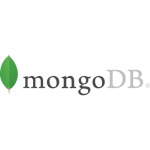About MongoDB Atlas
MongoDB Atlas is a cloud database service for applications that works with Amazon AWS, Microsoft Azure, and Google Cloud Platform. The database service seeks to comply with the most stringent data security and privacy standards while offering a reliable suite of drivers, tools, and integrations. By automating numerous database management tasks, MongoDB Atlas helps developers build apps faster with less human error.
About Eloqua
Oracle Eloqua offers a suite of marketing tools to automate the sending of advertisements through email, mobile devices, video, and search engine results pages. The solution promises to increase sales and conversion numbers while helping you understand your customers for improved marketing efforts. Eloqua tracks and analyses customer activity, visitor behavior, opened emails, and other data. It also saves, organizes, and analyzes important information about current and potential clients, such as names, contact information, locations, and purchase history.
Popular Use Cases
Bring all your Eloqua data to Amazon Redshift
Load your Eloqua data to Google BigQuery
ETL all your Eloqua data to Snowflake
Move your Eloqua data to MySQL
MongoDB Atlas's End Points
MongoDB Atlas Automated Features
The automated security features included in MongoDB Atlas let you monitor who has access to your data while securing your information against unwanted intrusions. Also, due to the platform's automation of mundane operational tasks — like provisioning and configuration, patching and upgrades, monitoring and alerts, advanced security automation, and disaster recovery — you don't have to be a data science expert to set up and run your databases.
MongoDB Advanced Security Automation
MongoDB Atlas provides a variety of database security layers including advanced access control, IP whitelists, in-flight data encryption through TLS/SSL, optional encryption of your file system, and network isolation through Amazon VPCs and VPC Peering.
MongoDB Atlas Built-In Replication
MongoDB Atlas offers multiple servers to provide 'always-on' availability. Even if your primary master goes down, multiple backups ensure that your system is always up and running.
MongoDB Atlas Backups and Time-Machine Recovery
The advanced backup and recovery features for MongoDB Atlas guard against data corruption. Whether the threat is from hackers or a team member's innocent mistake, you can rest easy knowing that, after a catastrophic, event you'll have a backup copy to recover your system from a specific time in the past.
MongoDB Atlas Detailed Statistics and Monitoring
MongoDB Atlas provides detailed information and statistics about your database systems. By organizing this information in numerous ways, the platform helps you understand when important changes or upgrades to your system may be necessary. Moreover, if it's time to make changes, you can provision new server instances in a flash.
MongoDB Atlas Automated Patches and Upgrades
Whether it's a new technology upgrade to improve database efficiency or a security patch to protect against a new security threat, MongoDB Atlas automatically upgrades or lets you upgrade with a single click, so you can take advantage of features as soon as they're available. Upgrades happen in a matter of minutes without any downtime required.
MongoDB Atlas Customizable Database Tools
MongoDB Atlas includes a suite of tools that allow you to select your regions, billing options, and more — allowing you to customize server instances to your desired specifications.
MongoDB Atlas Scalability
MongoDB Atlas scales up and down — or scales out horizontally through automatic sharding — according to the needs of your company with zero application downtime. This allows you to grow beyond the limitations of one server without making your application too complex. Moreover, the platform's automatic balancing keeps information equally distributed across multiple replica sets as your data volumes grow, or as your cluster increases or decreases.
Eloqua's End Points
Eloqua Customer Targeting and Segmentation
Marketers can use Eloqua to analyze and measure their customer data, online and offline through multiple channels and sources. Through one interface, you'll gain access to data on customer profiles, user behavior, and marketing campaigns. This allows you to identify potential buyers, determine what triggers purchases, and send real-time responses to customers and users.
Eloqua Marketing and Campaign Management Tools
Eloqua's out-of-the-box design editing tools empower users without HTML or CSS coding experience to build responsive emails, forms, and landing pages. With Eloqua's drag-and-drop interface, it's easy to set up personalized marketing campaigns. Also, a whiteboard feature allows you to map each stage of your marketing campaigns, giving managers the ability to modify steps, add new assets, or pause the campaign.
Eloqua Lead Management Features
Eloqua empowers non-tech-savvy users to pull reports on customer profiles and user behavior records without involving the IT team. Running lead scoring models on contacts is simple, and a listener framework notifies marketers of lead scoring changes as soon as they occur.
Eloqua Insights, Reporting, and Dashboards
Eloqua's marketing measurement tools offer actionable insights into the success of your marketing efforts through high-level overviews and up-close, granular investigations. As an Oracle product, Eloqua's data is compatible with Oracle's business intelligence platform, which organizes data into the reports and dashboards that come standard with the system. You can also set up customized dashboards and reports to suit your needs.
Eloqua Sales Enablement Features
The sales enablement features included with Eloqua integrate the efforts of your sales and marketing teams so they can work together to achieve better results. These features give sales teams granular information on individual leads (like web and social media activity), which allows you to send targeted and closely-tracked emails to leads that fit specific profiles. The sales enablement features also integrate with your CRM, Microsoft Outlook, LinkedIn, PathFactory, Mintigo, and Demandbase data to provide more information on each contact.








